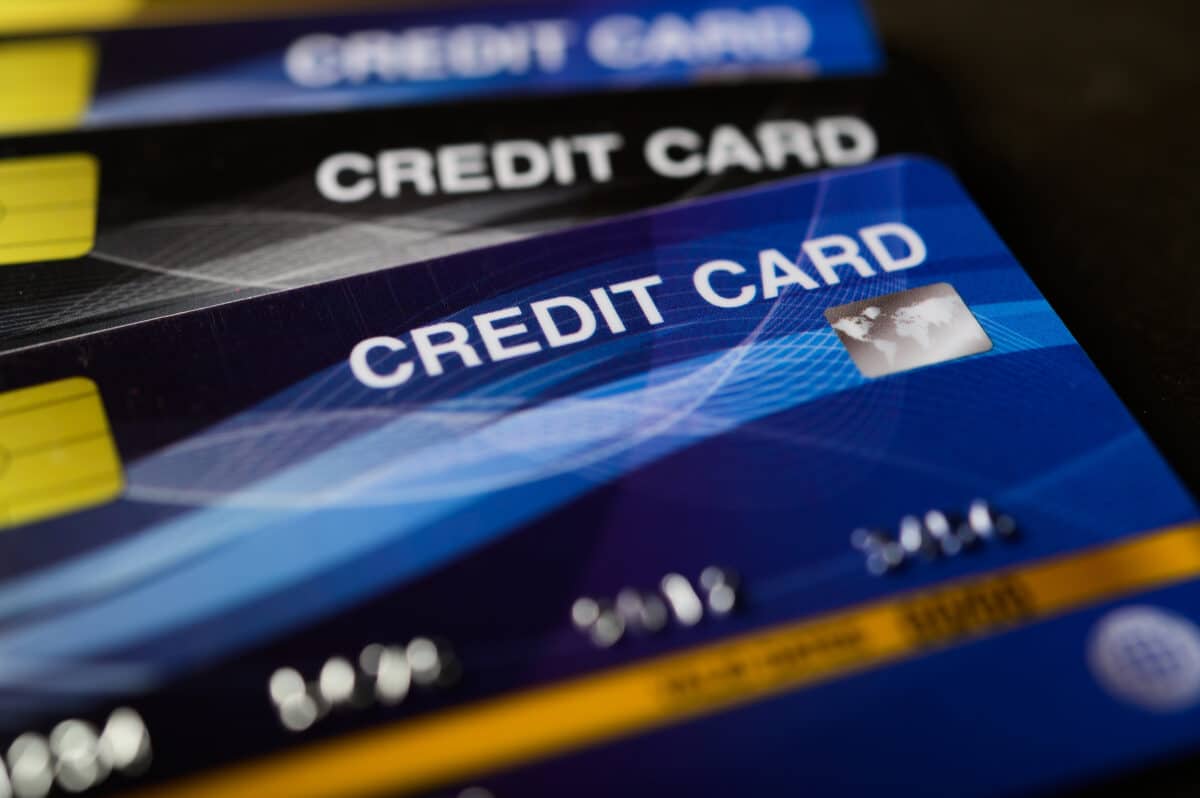Best Credit Union Credit Cards
Credit unions provide credit cards to their members which may be better than bank issued cards due to their lower APRs, lower fees, and great customer service. We have listed the best options for you to consider.

Table of Contents
- 8 Best Credit Union Credit Cards
- PenFed Power Cash Rewards Visa Signature® Card
- Navy Federal More Rewards American Express® Card
- Titanium Rewards Visa® Signature Card
- Navy Federal Platinum Credit Card
- DCU Visa® Platinum Secured Credit Card
- Alliant Cashback Visa® Signature Credit Card
- PenFed Gold Visa® Card
- PenFed Pathfinder® Rewards Visa Signature® Card
- What is a Credit Union?
- How to Get a Credit Card from a Credit Union?
- Is It Better to Get Credit Union Credit Cards?
- Is It Harder to Get a Credit Card at a Credit Union?
- FAQs:
Credit union credit cards can be better than some bank-issued cards as they offer much lower APR rates, lower transfer fees, and more personal customer service. Most of them do not charge an annual fee and have rewards that are similar to other credit cards.
To get a credit card from a credit union, however, the applicant must be a member. Some credit unions allow specific groups of people to become members like the Navy Federal Credit Union, while others like PenFed and Andrews FCU have more general eligibility requirements with memberships open to everyone. Moreover, most credit union cards require a minimum credit of at least 700 to qualify but a few unions allow members with less-than-perfect scores to apply for some of their cards too.
We have provided a list of the best credit union credit cards along with their features and eligibility requirements for you to compare and choose from.
8 Best Credit Union Credit Cards
| Lender | Scholaroo rating | Regular APR | Minimum Credit Score |
|---|---|---|---|

PenFed Power Cash Rewards Visa Signature® Card Best union credit card overall Visit website | 17.99% | 700+ | |

Navy Federal More Rewards American Express® Card Best for no fees and high rewards Visit website | 14.90% - 18.00% | 690+ | |

Titanium Rewards Visa® Signature Card Best for high credit limits Visit website | 14.74% to 18.00% | 700+ | |

Navy Federal Platinum Credit Card Best for lowest starting APR Visit website | 11.24% - 18.00% | 690+ | |

DCU Visa® Platinum Secured Credit Card Best for bad credit Visit website | 16.75% | N/A | |

Alliant Cashback Visa® Signature Credit Card Unlimited 1.5% cash back on all purchases Visit website | 17.49% | 670+ | |

PenFed Gold Visa® Card Best for a long 0% introductory APR period Visit website | 17.99% | 700+ | |

PenFed Pathfinder® Rewards Visa Signature® Card Best for travel benefits Visit website | 17.99% | 700+ |

PenFed Power Cash Rewards Visa Signature® Card
Best union credit card overall

Navy Federal More Rewards American Express® Card
Best for no fees and high rewards

Titanium Rewards Visa® Signature Card
Best for high credit limits

Navy Federal Platinum Credit Card
Best for lowest starting APR

DCU Visa® Platinum Secured Credit Card
Best for bad credit

Alliant Cashback Visa® Signature Credit Card
Unlimited 1.5% cash back on all purchases

PenFed Gold Visa® Card
Best for a long 0% introductory APR period

PenFed Pathfinder® Rewards Visa Signature® Card
Best for travel benefits
1. PenFed Power Cash Rewards Visa Signature® Card
2. Navy Federal More Rewards American Express® Card
3. Titanium Rewards Visa® Signature Card By Andrews FCU
4. Navy Federal Platinum Credit Card
5. DCU Visa® Platinum Secured Credit Card
6. Alliant Cashback Visa® Signature Credit Card
7. PenFed Gold Visa® Card
8. PenFed Pathfinder® Rewards Visa Signature® Card
What is a Credit Union?
Credit unions are similar to banks as they offer a number of financial products to their members like loans, saving accounts, and credit cards. However, these unions are not-for-profit organizations and they distribute their profits among members rather than giving them to the shareholders or owners.
These organizations are owned and run by their members and they operate to promote the financial well-being of their community. Since they are not-for-profit, they offer lower interest rates and more affordable terms to their members on the financial products they offer.
How to Get a Credit Card from a Credit Union?
You must be a member of the credit union to be able to get a credit card offered by that union. Many credit unions have their memberships open to everyone who is generally above 18 years old. However, some organizations limit their memberships to specific groups that they serve like military and navy-based credit unions allowing only current or former military members and related professionals and their family members to become members.
The following are the main things that most credit unions require to issue credit cards:
- Union membership: Applicants must be union members to apply
- Meet the minimum age requirement: Eligible applicants must be at the age of majority at the time of application. 18 years is the minimum age requirement for credit cards in most states.
- Good credit score: Most credit union cards require applicants to have a good credit score of at least 700. However, credit unions are lenient with eligibility requirements when approving an application.
- Proof of income: Like most other cards, these also require proof of income to qualify. It helps the issuer in assessing the borrower’s repayment ability.
- Identification documents: All credit card issuers require the applicants to provide government-issued identification proof such as a Driver’s License or a passport.
- Social Security Number: Some issuers require the applicants to have a Social Security Number to access their products and services
- Proof of Residency Status: Most credit unions require their members to be U.S. citizens or permanent residents. They also require proof, such as a utility bill, to show that the applicant has a U.S. physical address.
Is It Better to Get Credit Union Credit Cards?
Getting a credit union card has its pros and cons, and it is best to go through them thoroughly to decide if it’s better to opt for a credit union credit card or not.
Pros of Credit union credit cards
- Lower Interest Rates: Credit unions offer much lower rates on purchases and balance transfers, some as low as 11%, to their union members on credit cards. This is hard to get with most banks even with an excellent credit score and income.
- No Extra Fees: Many credit unions do not charge any extra fees on their credit cards. This includes no annual, no balance transfer, no cash advance, and no foreign transaction fee.
- Lower Penalty Fees: It is never good to make late payments as it can hurt your credit score. However, there are times when late payments occur and the cardholder has to pay a penalty fee on it. Credit union cards charge much lower penalty fees compared to bank credit cards on late and returned payments.
- Great Customer Service: Credit unions are owned and managed by their members and they operate for their members’ benefit. Their primary goal is to provide the best financial services to their member community. This results in a high level of customer service which is at a more personal level.
- Multiple Rewards: Many credit cards issued by credit unions come with great rewards including cash back, reward points, and welcome bonuses.
Cons of Credit union credit cards
- Membership required: Credit unions only allow their union members to apply and get credit cards and access other financial products. However, it is not hard to become a member of most credit unions as long as you are at the age of majority, are a permanent resident or citizen, have proof of ID, and reside in the U.S. Some unions may require additional documents for ID purposes like a Social Security card. Though, there a few credit unions which exclusively work for a specific group of people and only allow them to become members.
- Fewer branches and ATMs: Compared to banks, credit unions have fewer branches and ATMs which can make it hard to access their services in person. Nevertheless, some credit unions allow their members to withdraw cash using other ATMs too.
Is It Harder to Get a Credit Card at a Credit Union?
Most credit unions require the applicants to have a good credit score at least for credit cards, unless it’s a secured card. However, union members even without a good score may get approved for a credit card more easily as compared to when applying at a bank. This is because credit unions operate in the interests of their members and try to make it easier for them to access financial products.
Most credit unions also reconsider their members’ credit card applications after initial rejection and may provide exceptions based on individual circumstances. Furthermore, those members who have maintained a good relationship with their unions for a longer period of time have better chances of easy approval.
FAQs:
Do credit unions issue credit cards?
Yes, credit unions offer various financial products to their members like credit cards, savings and checking accounts, and loans.
Is it easier to get a credit card from a credit union?
It is easier for union members to get a credit card from a credit union as compared to getting it through a bank. This is especially true for members who have had a good long-term relationship with their credit union.
Is it better to get a credit card with a credit union?
Whether a credit card is better for an individual or not depends on what they are looking for in a credit card. Generally, credit cards from a credit union may be better for people seeking lower interest rates, lower fees, and good rewards. Many of them do not charge any extra fees including annual, foreign exchange, cash advance, and balance transfer fees. They also provide exceptional customer service which may be better than most banks.
What credit score is needed for a credit card from a credit union?
Most credit union credit cards require a score of 700 and above for approval. However, since they are not-for-profit organizations and work to benefit their members financially, credit unions may make exceptions for their members based on individual circumstances. Moreover, there are credit union cards designed specifically for members with bad or no credit.







